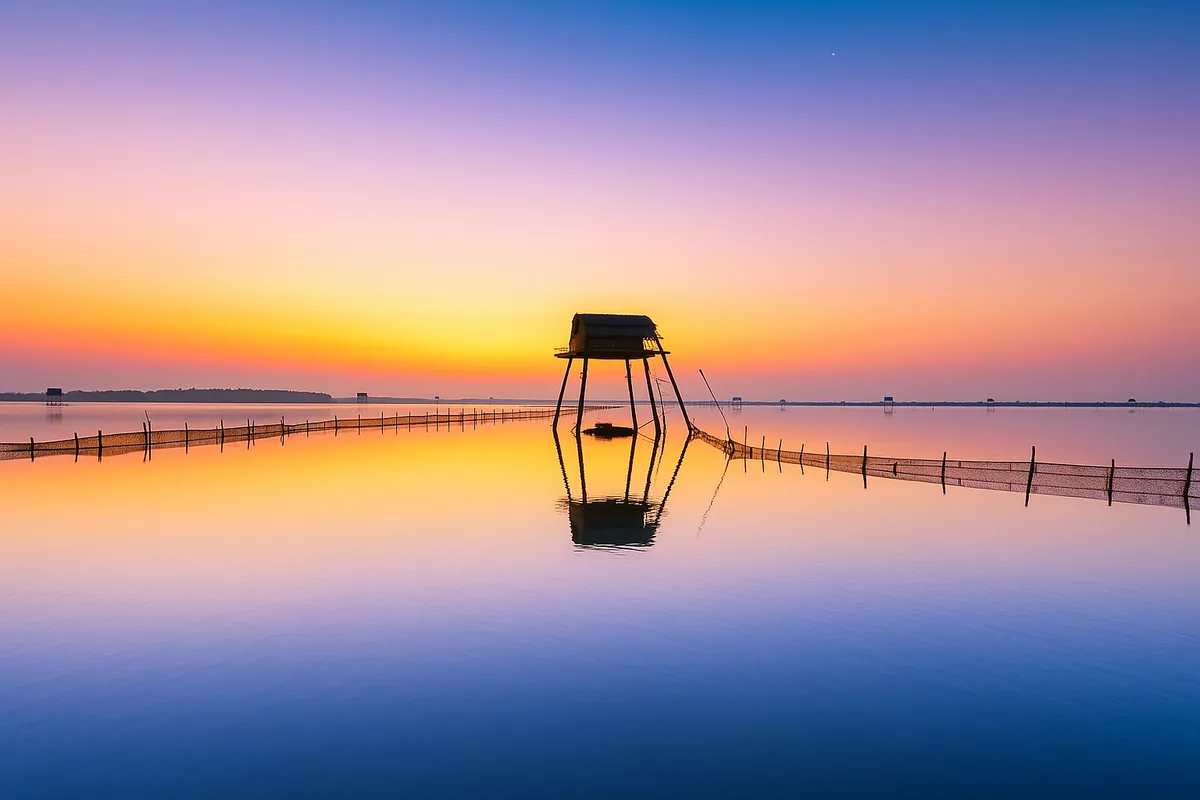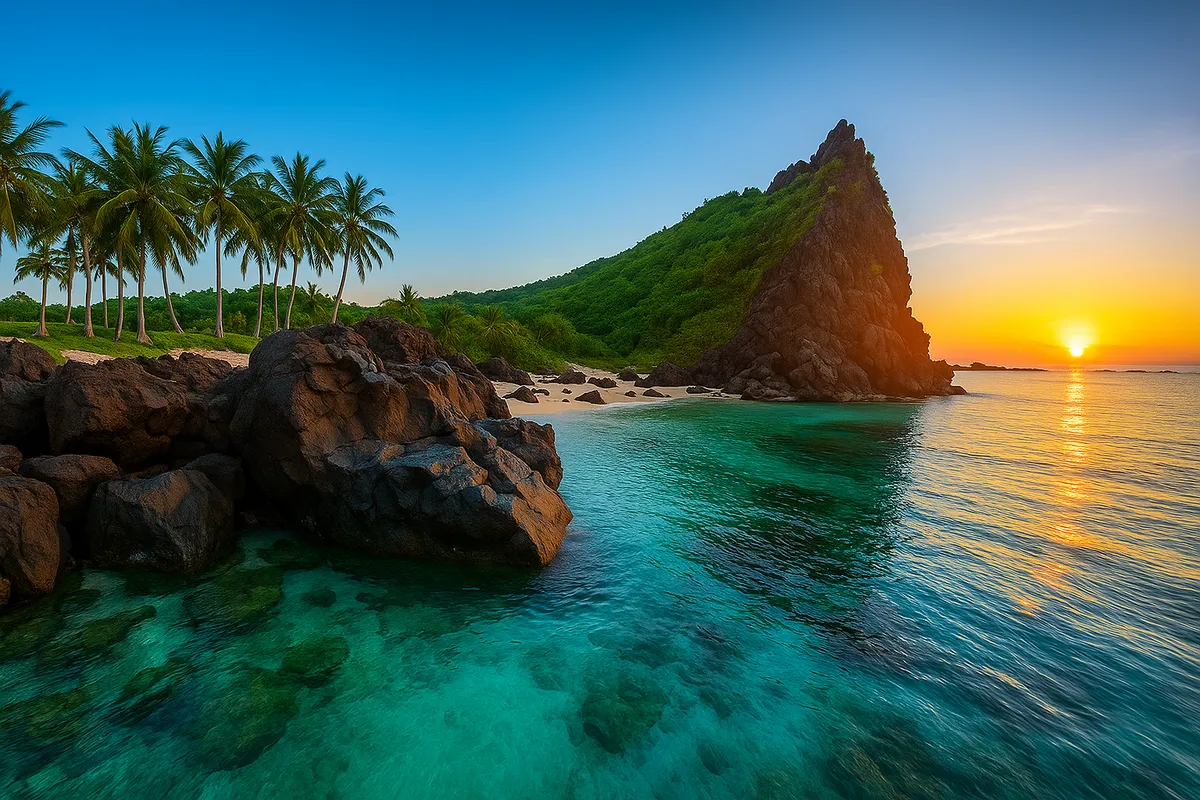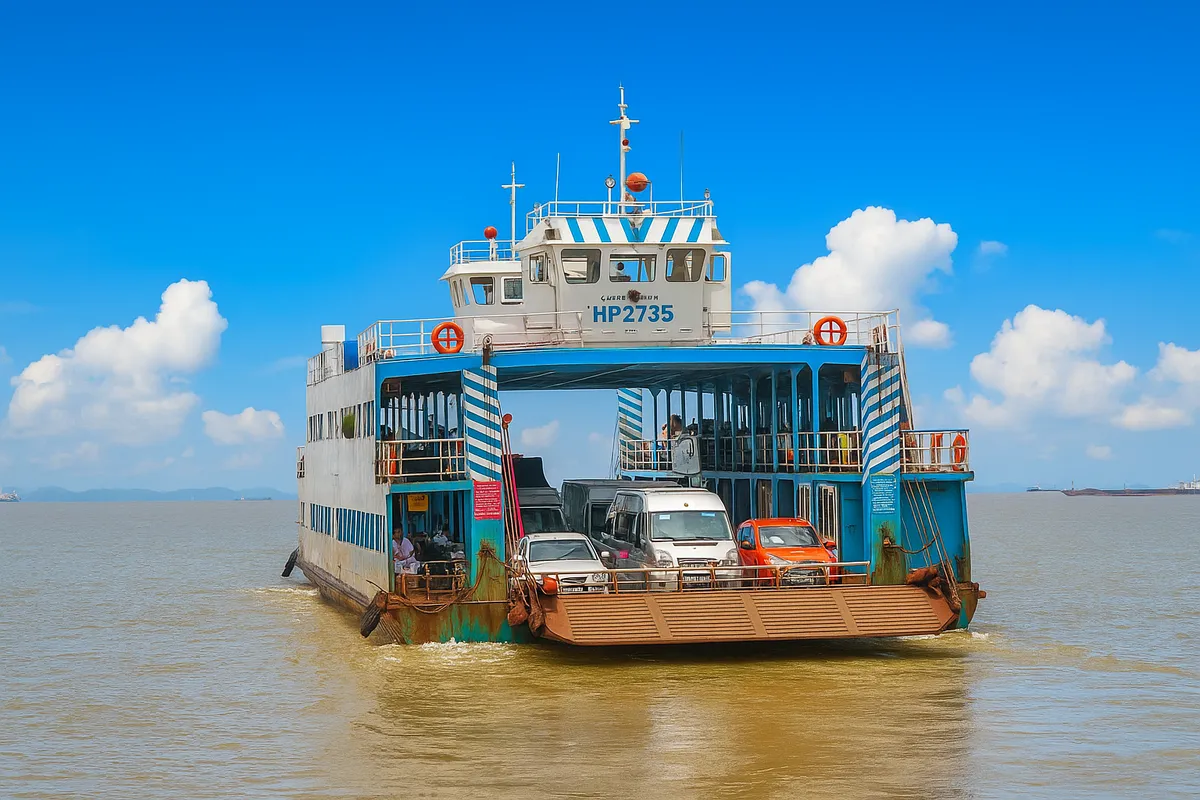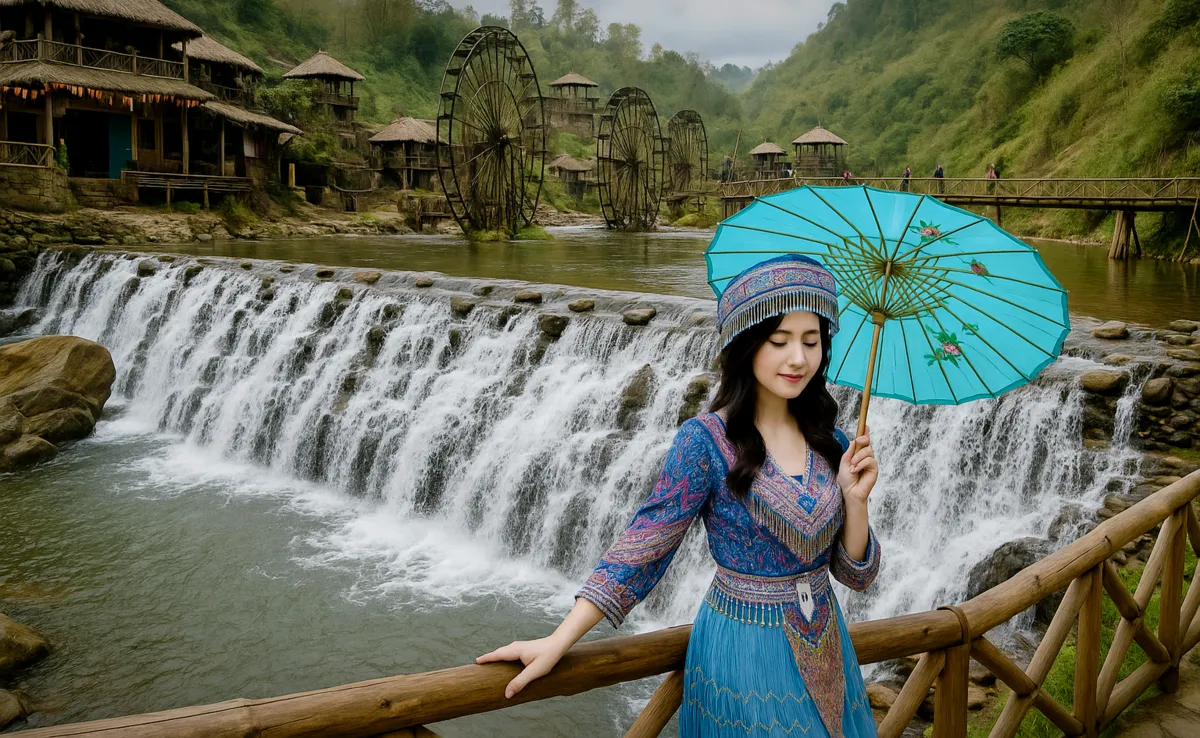Dong Chau beach, once visited, remembered for life
- Tuesday, Jun 03, 2025, 14:10 (GMT+7)
Dong Chau beach, once visited, remembered for life
Dong Chau Beach rises in the east of Tien Hai District, Thai Binh, where the surface of the water reflects not only the sky but also time itself. Arriving here on an early June morning, when the air still carries a slight chill from the night before, every step feels like entering a realm of memory. The sea breeze may not be strong, but it is enough to blow away all the lingering worries from the soul. In an age where urban life often washes emotions away, it is rare to find a coastal area that still holds its rawness, sincerity, and tranquility like this place.
Dong Chau is not a beach of endless white sand or turquoise waters. Its charm lies in something else. It is the beauty of a rustic life, of tireless labor, and of simple things that have turned into poetry. Each morning, as sunlight touches the horizon, the entire shore becomes a magical stage where clam huts stand silently between sea and sky. The scene is so serene that just looking at it softens the heart. This is where the sunrise rises not only over the sea but also from the quiet eyes of the fishermen wading through the shallow waters. It feels as if that light was born from hard work and faith in a full new day.
Dong Chau is not noisy, not bustling, and not filled with crowded shops or loud services. That is why there is always a space for silence. The rows of casuarina trees murmur in the breeze like old melodies being awakened. The salty air blends with the smell of sand and mud, carrying traces of straw from nearby fishing villages, making the atmosphere both strange and familiar like a countryside scent embedded in collective memory. On the shimmering water, small basket boats quietly cut through the waves like stories told by men who rarely speak, yet carry the entire sea within their weathered eyes.
It is said that this beach once welcomed ancestors who stopped here after long journeys across the sea. Legend holds that during the reign of King Le Trung Hung, troops followed this coastal route to reach the delta and expand their position. The name Dong Chau carries ancient echoes, reminding people of fertile riverine lands where water and silt flow together to nourish not only the rice fields but generations whose lives are tied to the sea. Today, the people of Dong Minh continue clam farming, as if extending an uninterrupted lifeline that has lasted for hundreds of years.
The soul of Dong Chau Beach lies in those humble clam huts that stand on bamboo stilts driven deep into the sand. From afar, they look like sketches drawn by a natural architect, simple yet perfect. These are not just shelters where people guard their clam ponds. They are grounding points between heaven and earth, places where one can feel rooted even in the vastness. On days when the tide retreats, the entire shore reveals a wide mudflat. Locals then use small hand sickles to gather clams while visitors can wade barefoot into the soft mud where each clam hides like a tiny pearl of the sea.
In summer, from May to July, the light here becomes unusually clear and gentle. The sun is not too harsh, the sea not too fierce. Everything seems balanced to create a perfect setting for a slow and peaceful journey. There is no need to rush, no goals to chase. One just needs to sit on the edge of a grassy patch, look out to sea, and let the waves touch the quiet edges of emotion.
The journey to Dong Chau Beach is not long, only about 30 kilometers from Thai Binh city center and less than three hours by car from Hanoi. The National Highway 39B leads through straight rice fields, crosses small bridges over rivers, and then suddenly opens into the immense space of the ocean. It feels like stepping through an invisible gate where the city ends and nature begins.
There may be no luxurious restaurants, but the seafood of Dong Chau leaves a lasting impression. Each dish seems to tell a story of the sea. The famous fermented fish salad balances sour, spicy, salty, and sweet, like a meeting of all elements. The jellyfish salad is fresh and cool, fragrant with herbs from backyard gardens. The clams, freshly raked from the shore, need only a steaming with lemongrass or a simple grilling to bring the pure taste of Dong Chau straight to the tongue. Yet beyond the flavor, it is the way people invite one another to eat with warm smiles and humble hands, that stays deepest in memory.
Few people know that Dong Chau is one of the rare beaches in northern Vietnam where a mangrove ecosystem still exists. Trees grow across the muddy shore, forming a natural barrier against waves and sheltering many species of migratory birds. Every evening, as the sun stains the horizon red, the sound of birds slicing through the twilight fills the space like a farewell song. The beauty feels both dreamlike and real, as if time slows down to admire itself in the glow.
Some call this the beach that whispers, because every breeze and wave carries its own language. Sometimes it is a call from the past. Sometimes it is a promise to return. In Dong Chau, beauty is not found in grandeur but in the rays of sun filtering through the mudflats, in the silent sweat of the sea workers, in each bamboo pole rooted deep into the earth like a quiet agreement between man and nature.
While many beaches are being reshaped by urbanization, Dong Chau remains a quiet message that there are still places untouched by time. Places where people can go far away, only to quietly find themselves again in the salt air and sound of waves. Places where the scenery is not only seen but also heard, touched, and felt in the rhythm of a humble yet heart-stirring coastal land.
And maybe one day, on the journey to find peace in a chaotic world, someone will come to Dong Chau again. Not to conquer it, but to live slowly. To listen to the whispers of the sea. To stand still and understand that the most precious place is not where many people gather, but where the heart truly wishes to stay.

 CHECKIN.VN
CHECKIN.VN








Share on